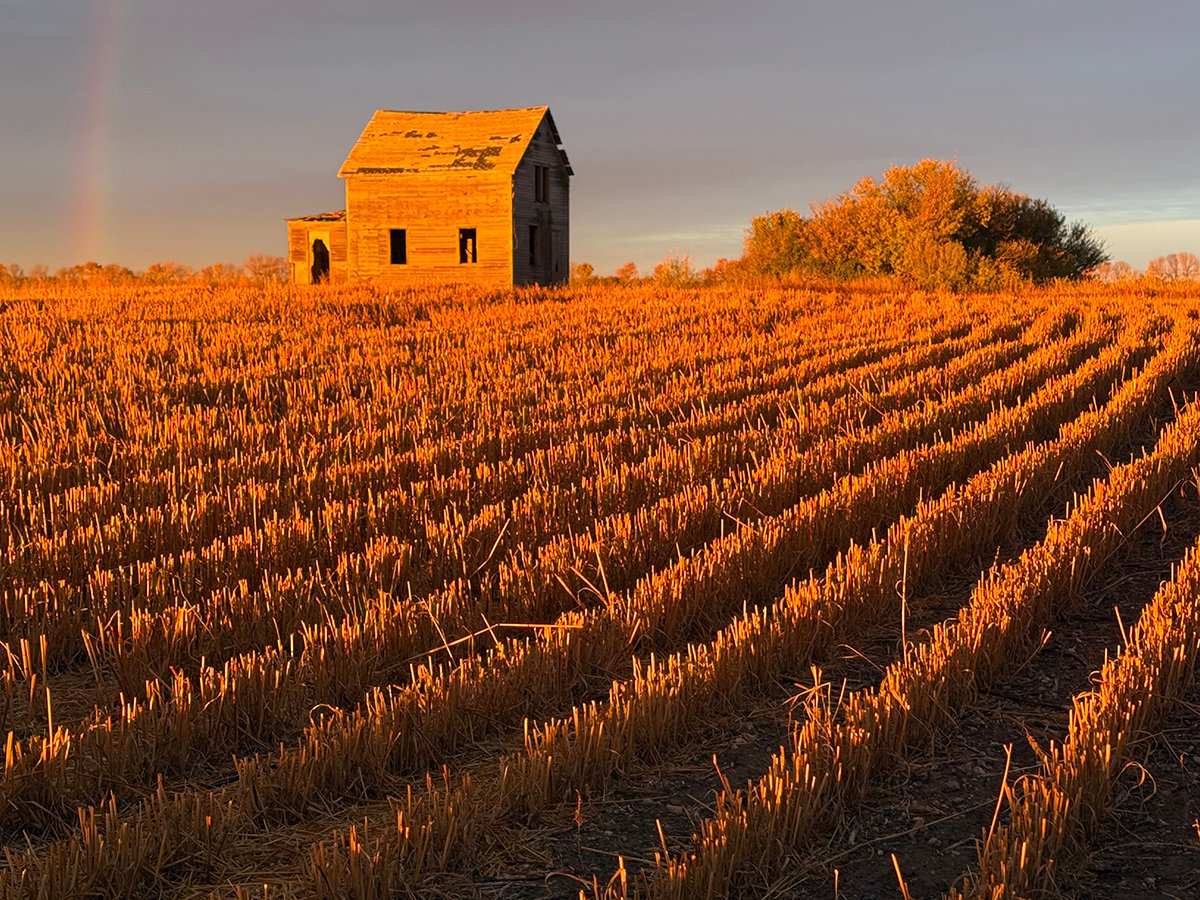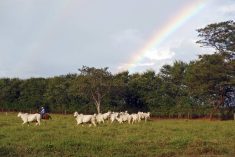MEACHAM, Sask. – Ernie and Loretta Polischuk were planning a life in Canada’s northern territories when they heard the call to farm.
Ernie’s father got sick and needed help to keep the mixed farm going at Meacham.
“It brought on the fact that he wanted me to farm,” said Ernie.
Trained in mechanics and welding, he left a job at a Saskatchewan potash mine to devote more time to the farm started by his grandfather, Phillip, an immigrant who left Russia seeking a better life.
Read Also

Forecast leans toward cooling trend
July saw below average temperatures, August came in with near to slightly above average temperatures and September built on this warming trend with well above average temperatures for the month.
“(They) fought so hard for land,” said Loretta.
“So we changed our plans.”
The couple managed a trip to Fort St. John, B.C., with their two children, Heather and Jason, in the 1990s and look forward to trips north after retiring from farming.
“When I get past (Prince Albert), I still love it,” said Ernie.
The Polischuks don’t regret their career path despite setbacks from dry and wet years, frost, lower wages and the sight of mobile homes en route to vacations at area lakes each summer.
“It was pretty tight,” said Loretta, who recalled paying for groceries from money collected in a jam can from milking cows and selling cream and eggs.
They received help with child care and farming from Ernie’s parents, Alex and Dora, who lived in the same yard.
Alex was a blacksmith who began farming full time at age 14 after his father died and left his wife to raise nine children. Dora was milking cows the day after she married in 1939 and Alex sought off-farm work to pay the bills.
“It’s a demanding lifestyle and spare time is not numerous,” said Ernie.
The farm has seen many changes since Phillip built a primitive house into an embankment in 1910 and started clearing the land of bush.
It grew to a 400 head cow-calf operation, but Ernie dispersed a smaller herd two years ago because of impending hip replacement surgery and difficulties finding hired help.
“Sometimes when you’re forced to make a decision, it’s how it gets done,” said Ernie.
Today, he grows wheat, oats, barley, canola, flax and hay on nine quarters of land, two of which are rented.
Last year’s unrelenting rain made it a challenge to grow even higher value crops like canola.
The Polishuk family once considered moving to the Melfort-Tisdale region but decided against it.
“You get your feet into the soil and you get tied to the place,” said Ernie, who called the farm a good place to raise a family.
Loretta said they have tried to keep their heavily treed land, which is better suited to raising cattle than grain, in as natural a state as possible.
“It helps keep the land more productive and balanced,” she said. “Parts aren’t meant to be broken. It keeps the soil from eroding.”
Inside the farmhouse, Loretta’s office is decorated with a map of a fictional fantasy world, about which she is crafting a novel.
Besides writing, collecting antiques and occasionally teaching, the retired teacher is also involved with the local credit union and cultural and historical groups. She was honoured with the prime minister’s award for teaching excellence in 2007.
Now in their 60s, the Polischuks are contemplating their exit from the farm and enjoying a quieter pace. They are taking more time for camping with their children and two grandchildren.
“We sleep in and don’t get up until 8:30. It’s nice not worrying about the clock ringing,” said Ernie.
With area farms getting bigger and farmers working elsewhere, there is little time for visiting today. The Polischuks have made a point of connecting with their community, celebrating their farm’s 100th year and more recently hosting a costume party in their home.
“We thought it was time to lighten it up,” said Loretta.














